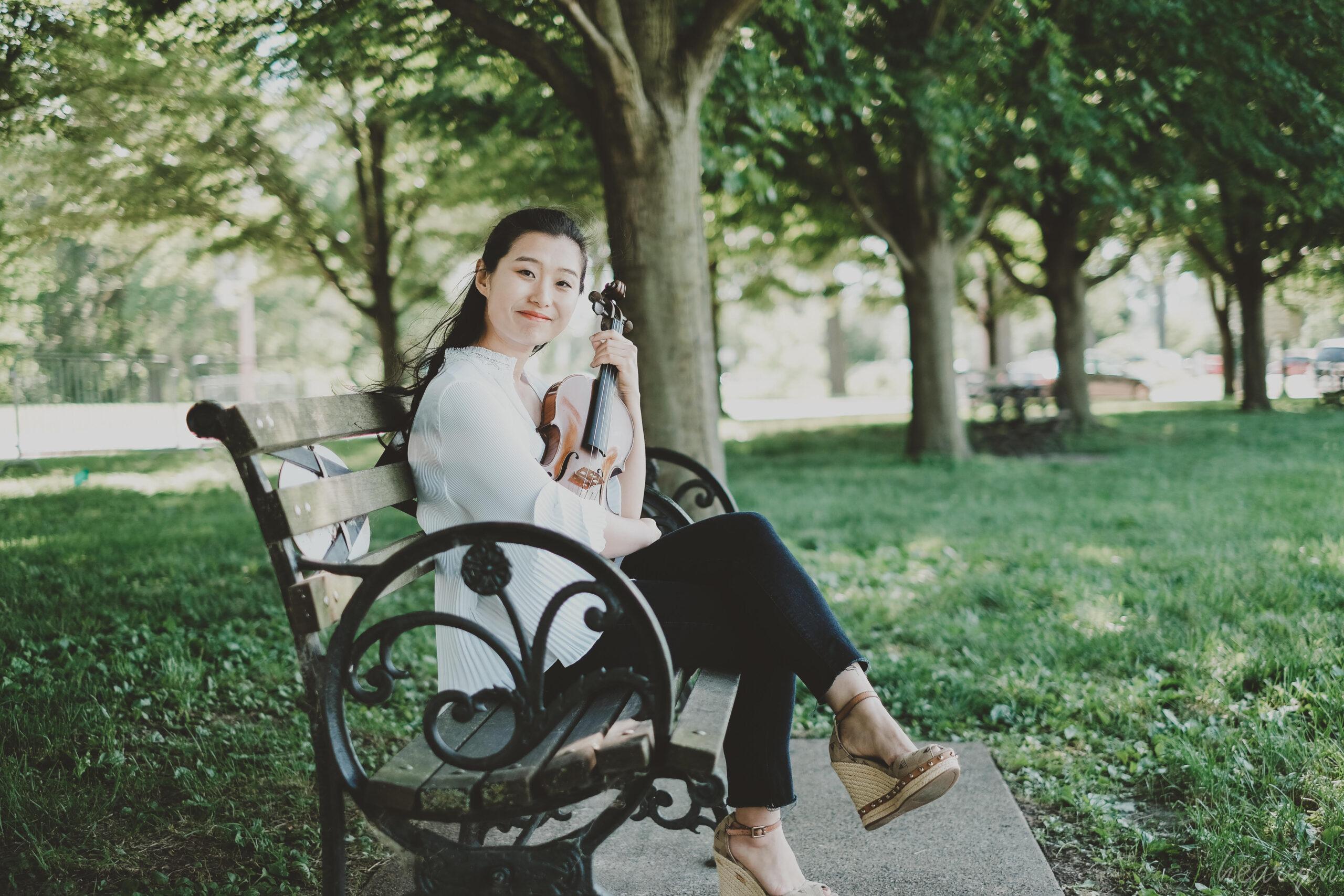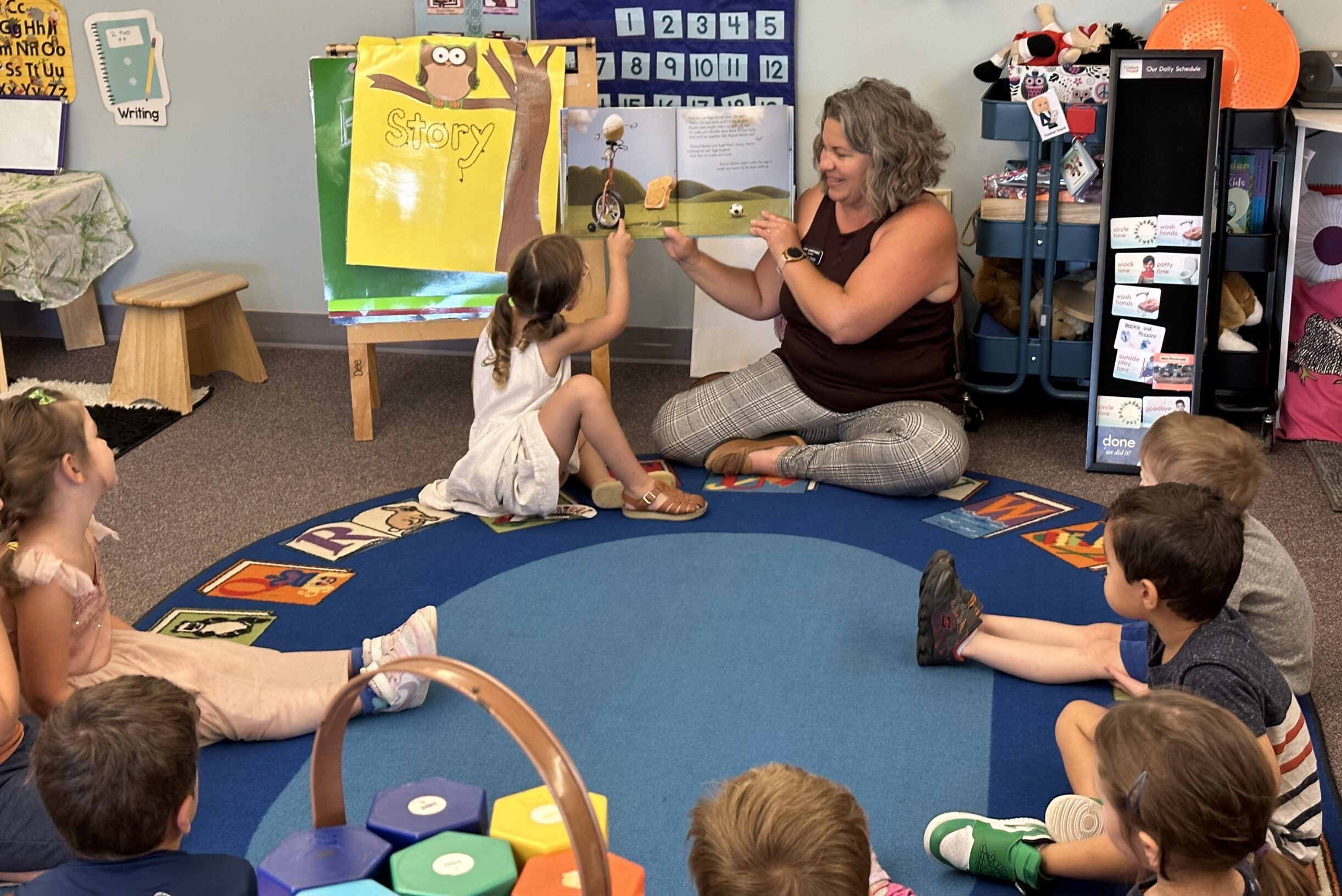
Yi Zhao is assistant concertmaster of the Colorado Symphony, but you may have heard her in Salida or Colorado Springs or Broomfield. She performs as a soloist and chamber musician throughout Colorado. She’s played Carnegie Hall and performed as part of summer festivals like Tanglewood and the Sun Festival in Singapore. Zhao has shared the stage with the likes of Yefim Bronfman and Leonard Slatkin. CPR Classical spotlights Colorado violinist Yi Zhao in honor of Asian American and Pacific Islander Heritage Month.
CPR: Can you tell me about your heritage, so we have it correct?
Yi Zhao: I was born in China and came to the United States for graduate school. I became a US citizen in 2020.
CPR: What was your start in music? Age, instrument, and the people who inspired you?
YZ: I started music on a small electric keyboard when I was four and switched to the violin at seven. I was deeply influenced by my father who loved music so much when he was child. Unfortunately he didn’t have the opportunity to pursue a career in music [but] taught himself many instruments on his own. His passion for music fueled me throughout my training and he is one of my biggest inspirations.
CPR: Has a career in music been your dream since the very beginning? If not, how did it become your career?
YZ: I didn’t even know that I could have a career as a violinist when I started. When I showed promising potential on the violin, my private teacher at the time opened my eyes to potentially getting into the Central Conservatory of Music in Beijing, where I was accepted when I was 12 years old. From then, I knew I would be playing the violin for a long time and more seriously. I am very grateful that what I am doing now is exactly what I envisioned.
CPR: 50 years ago, we hardly saw any diversity in classical music - gender, race, etc. How has the orchestral world changed in terms of diversity and is there more that needs to be done? Would love to know if you personally have or have not seen a change during your career.
YZ: I do think there has been big progress in gender and race diversity in the orchestral world--50 years ago there were hardly any women musicians or conductors. The screened audition process really provides a relatively fair selection of candidates at the end. This is how we see more women and different races of musicians in the orchestra nowadays. The fundamental concept of selecting qualified musicians includes removing as many potential biases as possible. Another very good push that's been trending is that more orchestras are starting to offer fellowship programs to younger musicians of color who may not have had the [same] opportunities to hone their skills and gain experience compared to their peers. I believe that providing such educational opportunities is key to diversifying the pool of musicians for the future. Of course, one of the negative shifts would be to select people simply based on their exterior identity or just for the sake of diversity of the orchestras. Ultimately the determining factor should still be the genuine artistry of each musician.
On the other hand, I often see that the selection process for leadership positions in the orchestra is still very different from section members. Although I understand the uniqueness of certain positions such as concertmaster (the first chair of the violins sitting closest to the conductor) or a conductor as they require different levels of skills and experience, the audition [processes] for these positions are much less transparent. Despite there being more women conductors and concertmasters in the orchestral world now, the selection processes often seem arbitrary or heavily biased. For example, while there would be a national audition for a section violin position, certain orchestras have a private audition with a select group of musicians often pre-determined by the conductor or, in some cases, a musician is appointed outright even without an audition. I would love to see more orchestras open up the opportunity for everyone to apply, rather than have private invitations only. Hopefully that will make more qualified women musicians to be seen in the world.
CPR: What does AAPI month mean to you?
YZ: After living in the United States for more than 10 years, I have learned the importance of respecting everyone’s heritage in the country we all live in. The AAPI month is a great opportunity to celebrate the equality that Asians and Pacific Islanders fought [for] over the decades. Our differences in cultures and traditions is what make this country unique in this world. As an Asian musician, I find it even more meaningful to embrace my cultural heritage and share it [with] everyone through music!
CPR: What piece, performer, composer, do you think we should look to to celebrate AAPI month, and why?
YZ: Check out Tan Dun (the composer of the Crouching Tiger Hidden Dragon soundtrack)'s Concerto for Zheng and String Orchestra! I would also recommend Unsuk Chin's Six Piano Etudes for someone who prefers something more intimate as well.
There are a variety of ways to hear great performances by today’s top artists as well as legendary singers from the Metropolitan Opera’s history. Download the Colorado Public Radio app, tune in at radio signals around Colorado, or you can tell your smart speaker to “Play CPR Classical."









